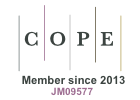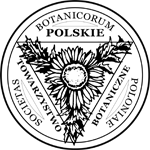Trigonella foenum-graecum (fenugreek)-mediated suppression of Meloidogyne javanica in mungbean
Tayyaba Zia, Imran A. Siddiqui, Syed S. Shaukat, Syed Nazaru-Hasnai
Abstract
Soil amendments with powdered seeds of Trigonella foenum - graecum (fenugreek) caused soil suppressiveness against Meloidogyne javanica. Decomposed seeds of fenugreek caused marked reduction in nematode population densities and subsequent root-knot development as compared to the aqueous extract of the seeds indicating that some indirect factors are involved in the suppression of root-knot nematode. Both decomposed seeds and aqueous extracts enhanced plant height and fresh weights of shoot whereas root growth remained uninfluenced. Changes in fungal communities associated with nematode control were studied by comparing population numbers of fungi in the soil and in internal root tissues (endorhiza) in non-amended and fenugreekamended soils. Acremonium sp., Chaetomium globosum, Fusarium solani, Macrophomina phaseolina and Rhizoctonia solani were found to colonize inner root tissues of mungbean. Acremonium sp., C. globosum and F.solani were isolated in a relatively higher frequency from roots growing in the amended soils while M. phaseolina and R. solani colonized greatly in roots growing in non-amended soil. Of the fungi isolated from soils, Penicillium brefaldianum caused maximum juvenile mortality of M.javanica whereas F.solani caused greatest inhibition of egg hatch.
Keywords
Organic amendments; saprophytic fungi; root-infecting fungi; root-knot nematode; fungal diversity
DOI:
https://doi.org/10.5586/aa.2002.050
Journal ISSN:- 2300-357X (online)
- 0065-0951 (print; ceased since 2016)
| | This is an Open Access journal, which distributes its content under the terms of the Creative Commons Attribution License, which permits redistribution, commercial and non-commercial, provided that the content is properly cited. | |
| | |






